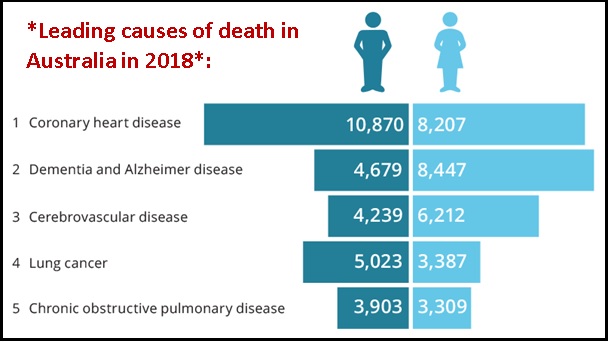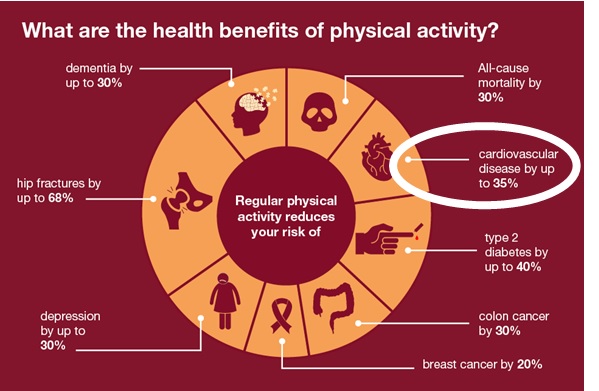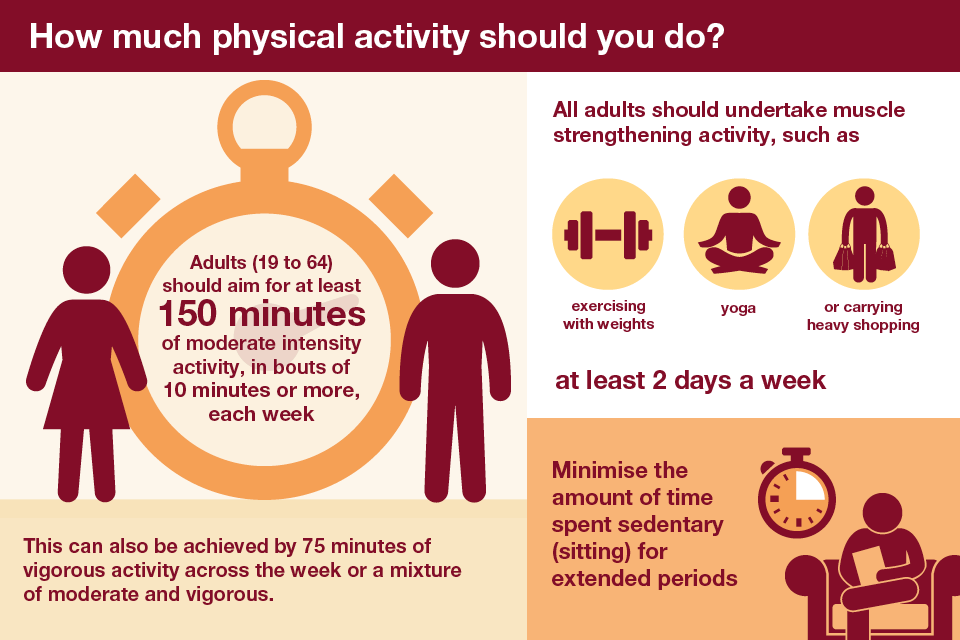Written by: Rachel Tan (Accredited Exercise Physiologist)
Why Aerobic Fitness is an Important Predictor of Health.
Cardiorespiratory Fitness Facts:
- CVD is the single leading cause of death in Australia!
- One person dies every 12min in Australia from cardiovascular disease (CVD)
- Affects 4.2million Australians (1 in 6 Australians)
- Most people 65 years or over are currently living with long-term CVD
- Accounted for nearly 30% of all deaths in 2017– that are largely preventable
- Someone has a heart attack every 10min
- Cardiorespiratory fitness (CRF) is a strong and independent predictor of all-cause and cardiovascular disease mortality rates

What is Cardiorespiratory Fitness?
Cardiorespiratory fitness (CRF) is a health-related component of physical fitness defined as the ability of the circulatory, respiratory, and muscular systems to supply oxygen during sustained physical activity.
CRF is usually expressed in metabolic equivalents (METs) or maximal oxygen uptake (VO2 max) measured by exercise tests such as treadmill or cycle ergometer.
What is Cardiovascular Disease?
- Refers to all diseases and conditions involving heart and blood vessels
- The main types of CVD in Australia are coronary heart disease, stroke and heart failure/cardiomyopathy
The main risk factors for CVD are:
- High blood pressure
- High blood cholesterol
- Smoking,
- Diabetes
- Being overweight or obesity,
- Physical inactivity
Preventable Lifestyle Risk Factors:
- Smoking
- Overweight or obese
- Lack of physical activity/being sedentary
Benefits of Exercise for Cardiovascular Disease
Regular aerobic exercise has a variety of effects that protect against heart disease and diseases of the blood vessels, including high Blood Pressure. On average, exercise reduces blood pressure by about 6–7 mmHg
- Keeping regularly active can reduce all-cause mortality by up to 30%2
- Reduce CVD risk by up to 35%2
- Reduction and/or maintenance in body weight
- Lowers blood pressure by up to 6mmHg, which can reduce the risk of stroke by 14% and deaths from coronary heart disease by 9%2
- Lowers bad (LDL and total) cholesterol
- Increases good (HDL) cholesterol
- Increases insulin sensitivity (ability of cells to utilise glucose to maintain stable blood sugar levels)
- Several biological mechanisms suggest that CRF improves insulin sensitivity, blood lipid profile, body composition, inflammation, and blood pressure
- In the Aerobics Center Longitudinal Study (ACLS), compared with the least fit men and women, the most fit men and women had 43% and 53% lower risk for all-cause mortality, and 47% and 70% lower risk of CVD mortality, respectively

Exercise Recommendations for Cardiovascular Disease
- Be active on most, preferably all days of the week
- If you aren’t doing any physical activity, start by doing some (walking 5min a day)
- 30-60 minutes per day, on 3-5 days per week, of moderate intensity exercise that gets your heart rate up (e.g. brisk walking, jogging/running, cycling, swimming).
- The total may be completed in shorter sessions of 5-10 minutes and accumulated throughout the day
- Exercise intensity can be set lower then increasing over time: as a proportion of maximal heart rate (50–80%) and using the rating of perceived exertion (10–14 on a 6–20-point Borg’s scale).
- Incorporate strength training twice per week

Public Health England, Department of Health UK. Health Matters; getting every adult active everyday
How can Inspire Fitness Help?
Our Exercise Physiologists at Inspire Fitness can prescribe a suitable exercise program to help improve your cardiorespiratory fitness tailored to your goals and to get the most out of life!
Our Exercise Physiologists can also help you manage cardiovascular conditions including chronic heart failure, atrial fibrillation, coronary artery disease, high blood pressure and stroke with a suitable exercise program.
If you have had previous heart surgery, our Accredited Exercise Physiologists are equipped to help you get back on the right track with your health and fitness goals.
The importance of cardiorespiratory fitness can often be overlooked from a clinical perspective compared with other risk factors such as hypertension, diabetes, smoking, or obesity.
Our Exercise Physiology process involves:
- Initial assessment to understand other medical conditions, musculoskeletal injuries, goals and current treatment
- An exercise program individualized to your needs and ability
- One -on-one Exercise Physiology sessions or a gym membership with regular contact and reviews
- Continuous support, guidance and education to ensure you feel confident!
For more information ask one of our Exercise Physiology team members or contact Rachel on 9857 3007.
